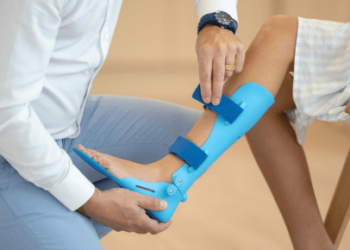In an era where the phrase home is where the heart is resonates more deeply than ever, families are increasingly turning to non-medical in-home care as a compassionate solution for their loved ones. As our aging population continues to grow, with millions of seniors and veterans seeking comfort in familiar surroundings, the demand for personalized care options has surged. Non-medical home care offers not only assistance with daily activities but also companionship that can significantly enhance quality of life. Families find themselves faced with a pivotal question: how do we ensure our elders receive the support they need while maintaining their independence?
The landscape of caregiving is shifting, driven by both emotional ties and practical considerations. With healthcare costs rising and institutional settings often failing to provide the personal touch many desire, non-medical home care presents a viable alternative that allows seniors to thrive at home. This article delves into the myriad reasons families are opting for this approach—exploring its benefits, challenges, and why it has become an invaluable resource for senior citizens and veterans alike. Join us as we uncover the transformative power of keeping loved ones close to home while ensuring they receive dignified and respectful care tailored to their unique needs.
What is Non-Medical In-Home Care?
Non-medical in-home care goes beyond the mere provision of assistance; it encompasses a holistic approach to enhancing the quality of life for seniors and individuals with disabilities. This type of service includes essential daily activities such as meal preparation, personal hygiene, light housekeeping, and companionship. For many, these services can alleviate feelings of isolation while ensuring that the elderly or those needing assistance maintain their independence—an invaluable aspect as they age in place.
Particularly beneficial for veterans care, non-medical in-home support can bridge gaps where traditional healthcare falls short. Veterans often face unique challenges related to their service experiences and transitioning back to civilian life; this form of care emphasizes emotional support alongside physical aid. By fostering connections and understanding through companionship, caregivers provide more than just services—they offer stability and reassurance during a transformative period in one’s life. The result is not just an enhancement of everyday routines but a profound upliftment in overall well-being, enabling individuals to thrive within the comfort of their own homes.
Services Offered in Non-Medical Care
Non-medical care services cater to a growing demand for personalized assistance, particularly in the realm of home care for seniors and veterans. These services transcend traditional caregiving, offering companionship and emotional support that are vital for enhancing the quality of life. Trained caregivers not only provide daily living assistance—like meal preparation and housekeeping—but also engage clients in meaningful conversations and enjoyable activities, fostering social connection that combats loneliness often experienced by older adults.
Specialized programs designed for veterans ensure that these individuals receive care that acknowledges their unique experiences and needs. Services like mobility assistance or transportation to community events empower veterans to maintain independence while receiving vital support. Integrating elements such as memory care helps those battling cognitive decline feel more secure in their environments, allowing them to cherish precious moments rather than focus on limitations. This holistic approach redefines what it means to age gracefully at home, emphasizing dignity and respect through tailored non-medical care solutions.
Benefits of Non-Medical In-Home Care
Non-medical in-home care offers seniors a unique blend of support and independence, allowing them to age gracefully in the comfort of their own homes. With professionally trained caregivers available for 24/7 care at home, older adults receive personalized assistance tailored to their individual needs—be it companionship during meals or help with light housekeeping. This type of care not only alleviates the pressures on family members but also fosters a familiar environment where seniors can thrive emotionally and socially.
Interestingly, studies have shown that staying at home can significantly enhance the overall well-being of seniors. The familiar surroundings create a sense of security that is often missing in institutional settings, reducing feelings of anxiety that can arise from changes in routine or environment. Additionally, non-medical caregivers can engage clients in stimulating activities like games or hobbies, promoting cognitive function and emotional connection. In this way, home care for seniors serves as both practical support and an enriching experience, providing an ideal solution for families seeking balance between safety and autonomy.
How to Choose the Right Provider
Selecting the right provider for non-medical in-home care for seniors in Houston, TX, requires careful consideration of several critical factors. Start by evaluating the specific needs of your loved one; a clear understanding of their requirements will help narrow down potential candidates. For instance, if round-the-clock assistance is necessary, prioritize agencies that specialize in 24-hour care and have robust systems to ensure seamless staffing continuity.
Next, delve into each provider’s reputation and reliability by seeking reviews from other families and checking their accreditation through organizations like the Joint Commission or the Home Care Standards Bureau. Moreover, consider providers that offer personalized care plans tailored to individual circumstances; this flexibility can make a significant difference in quality of life. Finally, don’t overlook the importance of interpersonal dynamics—schedule interviews where you can observe potential caregivers interacting with your loved one; emotional connection often enhances overall well-being more than any checklist can convey.
Cost Considerations for In-Home Services
When considering in-home services for elderly citizens, cost is often a pivotal aspect that can impact both decision-making and overall quality of life. While many families may initially focus on the hourly wage of caregivers, it’s crucial to consider the broader financial context. Beyond basic wages, associated costs such as travel expenses, background checks, and ongoing training can accumulate quickly. Additionally, the complexity of care needed—ranging from companionship to specialized medical support—can significantly alter pricing structures.
It’s also essential to think about potential long-term savings that in-home care might offer. Investing in home care could delay or even prevent more costly alternatives like institutionalized living facilities or emergency medical interventions arising from neglecting daily needs. Furthermore, families often overlook the value added by personalized services tailored to individual circumstances; these not only enhance quality of life but also promote independence among older adults. Thus, weighing immediate expenses against potential future benefits reveals a multifaceted financial landscape where meticulous planning becomes indispensable for budget-conscious families navigating elder care options.
Impact on Family Caregivers and Loved Ones
The role of family caregivers in home care for elderly citizens is a nuanced interplay of love and burden, often forcing them to navigate a fine line between compassion and personal sacrifice. As the demand for at-home assistance increases, many families face emotional exhaustion stemming from prolonged caregiving responsibilities. This constant balancing act can lead to feelings of isolation as caregivers might find themselves alienated from their peers or neglecting their social lives altogether.
The financial implications are significant—caregiving can drain resources as families grapple with costs associated with medical supplies, home modifications, or even respite care services. These factors not only weigh heavily on the caregiver but also ripple through entire family dynamics, often leading to increased tensions and altered relationships among siblings or other family members who may have differing views on caregiving duties. Recognizing these challenges is crucial; by fostering open dialogue about expectations and finding shared responsibility models, families might mitigate some stressors while empowering each member to contribute meaningfully without losing sight of their well-being.
Safety and Quality Assurance Measures
In the realm of home care for elderly citizens, safety and quality assurance are not just regulatory requirements but foundational pillars that redefine the caregiving experience. Implementing rigorous screening processes for caregivers is crucial; this includes thorough background checks and specialized training focused on elder care needs. Authorities in the sector emphasize that placing a high value on ongoing education ensures caregivers remain equipped to handle age-related challenges effectively, thereby elevating standards across the board.
Moreover, technology plays an integral role in enhancing safety measures. Many home care agencies now employ digital tracking systems that monitor caregiver visits and track health indicators of elderly clients in real time. This level of oversight means families can enjoy peace of mind knowing their loved ones are receiving attentive, quality nighttime care while safeguarding against potential emergencies. By marrying traditional care practices with innovative solutions, the industry not only fosters trust but continuously raises the bar for what constitutes excellence in home care services.
The Value of Home-Based Support
Non-medical in-home care plays a crucial role in enhancing the quality of life for individuals who may require assistance with daily activities but wish to maintain their independence. This type of support not only addresses physical needs but also provides emotional and social benefits that foster a sense of community and belonging. As families increasingly seek alternatives to institutional care, the demand for these services continues to grow, highlighting their importance in our healthcare landscape. Furthermore, investing in home-based support can reduce overall healthcare costs while improving patient outcomes. It’s time to recognize the value of non-medical in-home care and advocate for its expansion within our communities.










